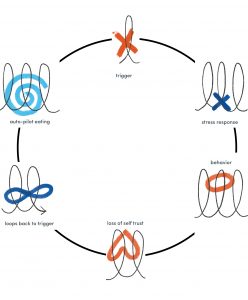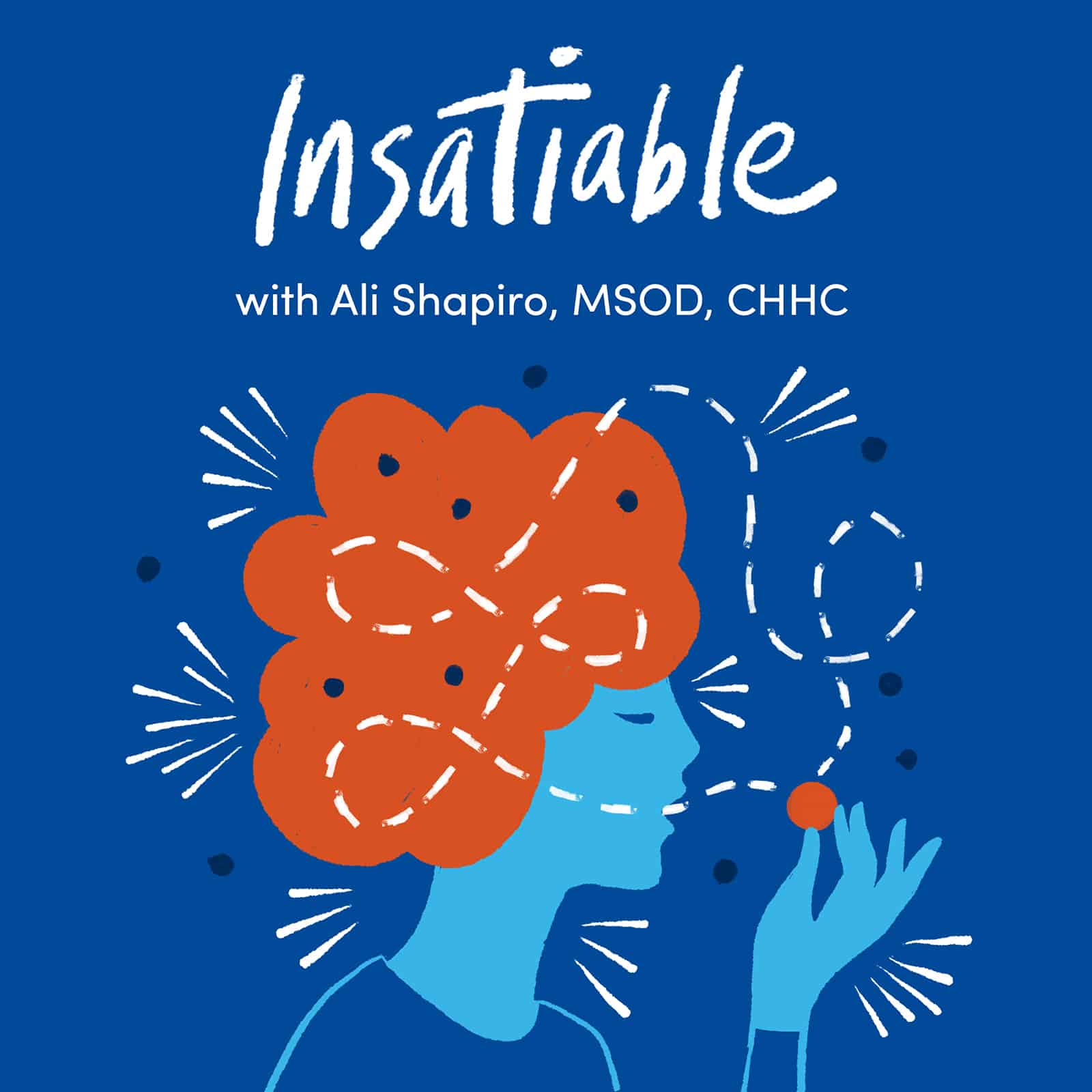Sarah Bray, an online friend I deeply admire tweeted,
“Loneliness is the worst of all the feelings. And the weird thing is, it’s not that easy to solve. It’s more about the heart than proximity.”
Sarah poetically captured startling research illuminating it doesn’t matter if you’re physically alone. Or if you’re attractive, intelligent or popular. It’s your perceived isolation, specifically if your relationships don’t meet your social needs.
Perceived isolation is one of the main triggers and reasons many of my clients go off track with their food choices. They eat out of alignment with their goals when:
- They come home at night, feel alone and eat (and Netflix while scrolling on social media) and then further spiral thinking about how they will be alone forever, and are so behind in life.
- After a disagreement with a partner.
- They’re with other people who are eating a bunch of junk (and/or drinking) and “go with the flow” because they feel self-conscious “trying” to be healthy when they feel like they’re failing at weight loss.
In each of these scenarios, my clients either know their needs (i.e. I don’t want to be eating this food) and dismiss them for various reasons or are unaware they have needs (i.e. feeling so alone when surrounded by people all day and when they do believe they have people they can count on).
Root Cause of Eating: Perceived Isolation
Most of my clients don’t realize they are choosing to isolate themselves, especially when they are physically with other people. Here’s the root cause of perceived isolation, that I call the Stress-Eating Cycle:
Description of Each Section
We isolate ourselves when we feel different in a bad way.
Trigger: Feeling different about our weight, our appearance, and our battle with food makes us feel separate and alone.
Stress Response: In the same way we have a fight, flight, or freeze physical response to stress, the emotional equivalent to protect ourselves is compete (fight), avoid (flight) or freeze (accommodate).
Here are some ways we try to protect ourselves against being different in a “bad” way:
- COMPETE: Compare yourself to thinner people and find ways you are ahead and behind. You come up short in the math often because we believe weight and beauty offer a fast track to everything we are behind on.
- AVOID: You’re afraid others will think you’re on a diet. And clearly failing because you haven’t lost enough weight yet. You genuinely don’t feel like dessert yet order one anyway to “go with the flow.”
- ACCOMMODATE: You’re the perfect host or you talk sports all night at the bar with a cute guy yet feel invisible when you don’t get enough gold stars for the logistics you pulled off or the guy doesn’t ask for your number.
Behavior: The way we frame the situation controls our behavior. And the behaviors that follow are usually isolating non-behaviors, which never challenge their story of what’s happening:
- Competitor: identifies all the ways we are different (weight, age, city versus suburb), shuts down, keeps the conversation superficial and never finds the common ground that will facilitate connection.
- Avoid: doesn’t speak up for food or other needs and now feels invisible and more stressed from the way they’ve eaten and/or what’s on their metaphorical plate.
- Accommodate: doesn’t check in with own needs and let others perceived needs shape the social connection.
My clients ultimately uncover that one or all of the above are the reason they are eating out of alignment with their goals― causing them to further lose self-trust and further isolate themselves.
We are told we are self-sabotaging by diet and personal development culture, when we are actually brilliantly protecting ourselves with these responses, which have worked for us in the past, garnering success and building relationships.
However, this emotional protection is over-correcting itself. If we don’t become aware of what’s really happening when we feel alone, a vicious cycle ensues where we lose resilience and the ability to challenge our own story of events.
A note of profound nuance: It’s popular in the self-help world to call these assumptions or stories self-limiting beliefs. But the hard truth is that in some cases, it’s not “all in your head”:
- Thin privilege exists.
- You’re not going to be healthy and/or lose weight without feeling like you’re on a roller-coaster, dipping into set-backs at times.
- There are people who have narrow definitions of what a romantic interest looks like.
However, we do have a choice in how we will respond, rather than react, when these experiences unfold. We can conclude “this is how all of life is” or, “this is how sometimes life is.”
This is also why traditional emotional eating tools like “call a friend when you’re lonely” don’t always work (if we even call the friend). They aren’t addressing the root cause. We aren’t lonely because we didn’t call our friend. We’re lonely because we have a consistent pattern of isolating ourselves and not getting our needs met in various relationships, even in more casual interactions. Until we stop this cycle, we will continue to backslide with our eating and make life harder and more lonely for ourselves than necessary.
Does this resonate? If so, it’s important to think about this cycle and understand it before we can transform it.
If you want to go deeper on how to use inconsistency caused by emotions such as loneliness as an opportunity to improve your nutrition and wellness goals (instead of falling off track), start by identifying the four emotional triggers for emotional eating, with loneliness being on of them:







Leave a Reply